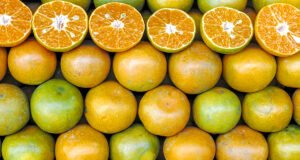We’ll remember the protein diet as the fad of the 2020s, when new schools of thought enlighten us with new certainties on the subject of health, weight loss, and bodybuilding. In the meantime, we should at least review the basics of this diet, so as not to be seen as clueless on the matter: How much protein do we need? What are the best sources? What are the risks of overdoing it? And, above all, who needs to eat more protein? We asked Rudy Alexander Rossetto, nutritionist, president of the Order of Biologists of Lombardy, and professional coach of the Italian National Olympic Committee (CONI).
How much protein do we need to consume?
First, the dosages: “There’s no one-size-fits-all guideline, because each person has different needs. Think of children, pregnant women, and athletes: their protein intake should inevitably be higher,” he explains. Therefore, the generic recommendation of 0.8 g of protein per kilogram of body weight is just a starting point, but be careful not to turn protein into “lottery numbers.”
Since nutrition is a serious matter, the only way to know how everyone’s protein consumption and levels should be regulated at the table is to consult a professional. “The only ones authorized by law to create personalized nutritional plans are the nutritionist, who has a more clinical approach, and the nutritionist, who monitors both healthy individuals and those with ongoing medical conditions. Then there is the dietitian, who remains a medical professional but does not work independently: they have a three-year degree—unlike the master’s degree of a nutritionist—and can only create nutritional plans upon a doctor’s prescription and subsequent approval.”
What are the best sources of protein?
The fact is that it takes experience, even a trivial one, to identify the best proteins to stock up on. Because “not all are equal in quality, biological value, and amino acid profile,” continues Rudy Alexander Rossetto. “Even among the same animal proteins, there are enormous differences. For example, eggs are an extraordinary source, often superior even to meat in quality and content of essential amino acids. Their biological value is among the highest in existence. Another myth to debunk is that they are harmful: science tells us that the cholesterol contained in eggs is not significantly absorbed by the human body. Therefore, there is no problem in consuming them two or three times a week.” While—no, sorry for vegetarians —it is confirmed that legume proteins do not have the same value as those of animal origin: “Those who want to give up meat can do so perfectly, but they should supplement with vitamin B12 under the advice of a professional.”
Why is it not good to overdo it with protein?
The problem is that there has been a lot of confusion in recent years. “Dangerous messages are circulating among ketogenic, high-protein, and DIY diets, especially when it comes to protein .” But what’s the real risk of consuming too much? “First of all, too much protein overloads all organs, starting with the liver and digestive system. Not to mention that it increases the risk of cardiovascular disease, especially in those who already have heart problems.”
And Rudy Alexander Rossetto continues: “The fact is that nutrition is a science, not an opinion, and the guidelines tell us the following: first come carbohydrates, second fats, and only thirdly proteins, which should account for about 13% of daily caloric intake. We can go up to 15-17%, but they must always be lower than carbohydrates and fats. Incidentally, proteins and carbohydrates provide exactly the same calories, exactly four per gram. This means that carbohydrates are no more ‘fattening’ than proteins. However, today, terrified of sugar, we have started putting protein everywhere, often without understanding the consequences. Take, for example, a patient with heart problems: a meal with too much protein, especially one rich in red meat, causes slow and heavy digestion, which can last up to four hours. This means that a lot of blood flows to the stomach, taking it away from the heart and brain. If this person then lies down for the classic “A nap after eating causes the heart to receive less blood, just as it slows down to rest: a combination that can increase the risk of a heart attack .”
What about young, healthy people? “In this case, it has not yet been proven that a high-protein diet directly causes kidney damage, although the overload is real. But we must also consider metabolic acidosis, calcium loss —with the consequent risk to bones, digestive problems, liver overload, and increased cardiovascular risk.”
A high-protein diet is often useless
Furthermore, there’s a physiological fact we often ignore: “Our bodies can only absorb so much protein in a single meal,” explains Rudy Alexander Rossetto. “If, for example, I eat a one-kilogram steak, I won’t assimilate all 60-70 grams of protein it contains, but maybe half, depending on my body weight. And everything else translates into an unnecessary burden on the liver and kidneys. The paradox is that today we demonize carbohydrates, which are not enemies but allies, because they not only provide energy, promote good mood, and help you fall asleep, but are also essential for rebuilding glycogen stores immediately after sports training, especially if taken within 10 minutes of the activity. While we praise protein, even when it is not needed. Another myth to debunk, by the way, is that protein ‘builds muscle’. Which is true, but to a certain extent, muscle development depends on training and overall caloric balance, not just on protein. But, unfortunately, between advertising and influencers, the message that reaches people is different, and many young people, even very young ones, “They fill up on protein without any ‘criteria’.”
What is a protein diet?
Let’s keep all this in mind and now look at what a high-protein diet consists of. “There’s no precise definition: it can mean many things, depending on how it’s interpreted… or misinterpreted,” explains Iader Fabbri, a nutritionist biologist and advisor to numerous sports champions, in his book Benessere, longevità e salute (Well-being, Longevity, and Health). “The big mistake is thinking that a high-protein diet simply means ‘high-protein,’ that is, based almost exclusively on protein, with a drastic cutback on carbohydrates and fats. This extreme approach should, in reality, only be a temporary phase of well-structured eating habits, because if carried out for too long, it could end up being dangerous to your health.” However, many people continue with this type of diet because—yes—it does make you lose weight quickly. “Because it’s very satiating, it leads to eating less. It also causes rapid depletion of muscle and liver glycogen—that is, sugar stores in the muscles and liver—and makes you lose a lot of water bound to glycogen, giving you a very popular ‘drying’ effect.”
What foods should and shouldn’t you eat on a protein diet?
“Those following a high-protein diet in the strictest sense of the word don’t have much choice: the base consists of foods with a very high protein content and no fat, i.e., white meat, eggs, fish, sliced lean meats like bresaola and rump steak, and sometimes low-fat Greek yogurt. They are combined with very few vegetables, i.e., those with the fewest carbohydrates, and seasoned with a maximum of one tablespoon of oil per meal. Many foods are not allowed, including legumes, which are high in carbohydrates.”
Who can do a protein diet?
“Generally, those who adopt this approach are athletes who engage in weight-related activities, as well as those who resort to extreme, last-minute remedies to lose weight. But—I repeat—unbalancing [your body] with a protein-based diet can be a big mistake. Those who wish to embark on this path should only do so under strict medical supervision and, in any case, never for prolonged periods.”
The risk of the yo-yo effect
Also, because “a high-protein diet makes you lose weight very quickly in the first period, but just as quickly makes you gain it back when you get back to normal. For a very simple reason: it’s a dietary technique that doesn’t teach you how to eat well, and you can’t stick with it for long. That’s why it’s always more effective to learn the tools of a proper diet: they help change habits, create a new eating culture. In short, a new identity.”
How to structure a balanced protein diet?
If there’s so much talk about protein in our diets these days, it’s because it’s a nutrient that’s been rediscovered after years of diets that were very unbalanced in terms of carbohydrates. These macronutrients shouldn’t be excluded at all, but rather selected according to their glycemic load, their density, and therefore, one’s lifestyle: chosen according to what’s defined as the “ balance index,” Fabbri continues. “For me, this means rethinking the ‘pasta every day’ principle that has been instilled in us for decades, because pasta should be a ‘positive wild card,’ to be used, of course, but enjoyed according to one’s physical activity or lifestyle. To balance your diet, you can choose other sources of carbohydrates to combine with protein: above all, vegetables as the absolute protagonists of the dish, and then fruit .”
How does the protein diet differ from the Mediterranean diet?
But what has become of the benefits of the Mediterranean diet? “It has changed so profoundly over the decades that, in my opinion, it is difficult to even define it today. I also believe that the ideal model studied by Ancel Keys is no longer followed by anyone. Moreover, today the data tells us that Italy—for example—is one of the countries with the highest number of obese people in the world, and that the problem does not exclude children: in short, the harsh truth is that we have no model to inspire us. This is probably because we have not followed the Mediterranean diet we grew up with as we should, unbalancing our diet solely in carbohydrates. I repeat: carbohydrates, like any other food, should not be eliminated, but we must be able to do what I call ‘ protein matching,’ distributing them across main meals and avoiding demonizing good fats .”
In short, a healthy diet that is never prohibitive and therefore does not deprive us of the true pleasure of eating.























+ There are no comments
Add yours